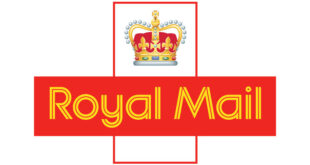Bank buildings at Toronto’s financial district on Sept. 3, 2020.
Fred Lum/The Globe and Mail
Canada’s banking regulator will not yet consider lifting restrictions on banks’ dividends and share buybacks introduced at the start of the pandemic, even though the largest lenders continue to amass growing stockpiles of surplus capital.
As parts of the country move into deeper phases of lockdown, Jeremy Rudin, the head of the regulator, said he is waiting to see “a clear path to a durable recovery” and less “economic uncertainty” before considering any changes.
Since March, the Office of the Superintendent of Financial Institutions (OSFI) has told banks to not increase quarterly dividend payments or total executive pay, or buy back stock from investors, in order to preserve capital to absorb shocks from the coronavirus pandemic. That is a major reason why capital reserves have grown by billions of dollars at each of Canada’s big banks since then.
Even with no end to the restrictions in sight, bank CEOs are starting to look for opportunities to spend some of that excess cash. But for now, their hands are still partly tied, as the public-health outlook appears set to worsen before it gets better.
“The fact that lockdowns of indefinite duration and uncertain severity are spreading across the country really means that we’re moving away from the situation of reduced uncertainty that we’ll be looking for, rather than towards it,” Mr. Rudin of OSFI said at a conference hosted by Royal Bank of Canada on Monday.
At the same conference, the chief executives of several banks expressed growing optimism about economic recovery in the latter half of their fiscal year, which ends Oct. 31. Each acknowledged there will be tough months to come, but most predicted a pickup in consumer confidence and business investment as federally led vaccination programs start to curb some of the worst outbreaks of the novel coronavirus.
Royal Bank of Canada CEO Dave McKay estimated that between four million and 4.5 million high-risk Canadians need to be vaccinated before the national economy can start to reopen in earnest. If enough doses of the vaccine are available, “we could achieve that in 100 days,” he said.
Bank of Montreal CEO Darryl White said he is “pretty bullish” on the outlook for the back half of 2021. “You have to kind of think about two time frames. Over the next two to four months, we’re going to witness the race between the vaccine and the virus, and it’ll be a difficult race,” he said. “Beyond that, my confidence just continues to increase.”
Mr. White predicts that global economic growth could rebound to 5 per cent or 5.5 per cent in 2021, and that Canada and the U.S. may not be far behind, with gross domestic product (GDP) projected to rise 4.5 per cent to 5 per cent this year. The big question for 2022 would be whether that rate of growth can be sustained, he said, estimating it could settle between 3 per cent and 4 per cent.
Victor Dodig, the CEO of Canadian Imperial Bank of Commerce, was slightly more measured as his bank’s economists are forecasting GDP growth “in the 4-per-cent range in both markets.”
A bounce back in economic growth could unleash spending and demand for new loans that have been in short supply through the pandemic. Many households and businesses have curbed spending, stashed away savings and paid down debt, helped by massive amounts of government stimulus. As a results, banks have had a harder time deploying the surplus cash sitting on their balance sheets to earn new revenue, and that has dragged profits lower.
A surge in demand for mortgages has been a notable exception, as a sudden shift to remote work created a spike in demand for homes with more space – often outside major urban centres – that has continued so far this year. But those home loans generate lower profit margins for banks than credit cards or commercial lending.
The result, compounded by OSFI’s restrictions preventing banks from returning more capital to shareholders, is that lenders are generating more capital than they can use. On Monday, bank CEOs sketched out varying strategies to put those funds to use.
Three of the Big Six banks have signalled their willingness to pursue mergers and acquisitions. Toronto-Dominion Bank is often cited as the most likely candidate, and CEO Bharat Masrani said Monday that the bank has a track record of taking advantage of major downturns to make large deals. “If something makes sense … would we look at it? Yes, we would,” he said. “I expect something will show up given the level of dislocations that have taken place. But that does not necessarily mean that we’ll do the deal.”
Mr. White and Mr. McKay both said they would consider making a deal to get stronger outside their core footprints in the United States – BMO is strongest in the Midwest, and RBC in California and New York. But both CEOs also said they will invest first in their existing businesses. “We don’t feel a compulsion to transact,” Mr. White said.
Bank of Nova Scotia has shown little appetite for more deals after buying and selling a number of businesses in recent years. But its leaders are keen to return capital to shareholders. “I’ve been very clear, when the regulator gives us the green flag, the next day we’ll be out buying our stock back,” CEO Brian Porter said. “We think our stock is inexpensive.”
With OSFI showing no sign of budging on shareholder payouts in the near term, however, investors may have to be patient. “I don’t expect that that will change until the back half of this year,” Mr. Dodig said. “So we kind of live with that.”
Your time is valuable. Have the Top Business Headlines newsletter conveniently delivered to your inbox in the morning or evening. Sign up today.
Source link



